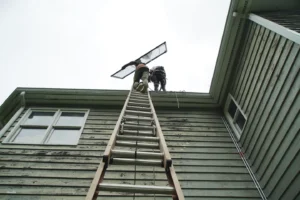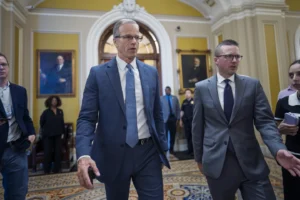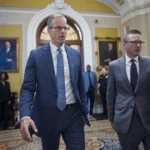“Kind of a No Brainer”: Advocates Renew Push for Medicaid Expansion
Wyoming is one of 11 states that has yet to expand health insurance coverage
- Published In: Politics
- Last Updated: Dec 14, 2022
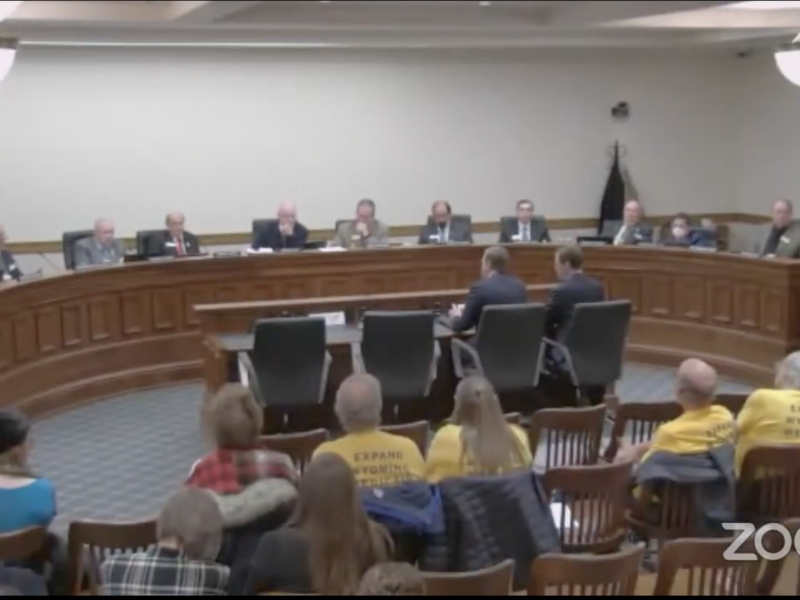
Members of the Joint Revenue Committee voted 9-5 last month to advance a bill to expand Medicaid health insurance coverage. (Photo via the Joint Revenue Committee / Zoom).
By Jacob Gardenswartz
Special to the Wyoming Truth
In March of 2020, Tazle Markovich returned home to Casper after a two-year stint in Ecuador working as a community health volunteer through the Peace Corps. Back in Wyoming, Markovich started applying to medical school, getting one step closer to his dream of becoming a doctor.
There was just one problem: he didn’t have health insurance. Having aged out of his parents’ health coverage, and with jobs hard to find as the COVID-19 pandemic raged, Markovich became one of the 65,000 uninsured Wyomingites at a time when access to health care was more important than ever.
“I personally fell through that gap with health insurance,” Markovich recalled in an interview with the Wyoming Truth. “I applied for Medicaid, [but] being completely ignorant on the issue, then got denied because I don’t have a dependent, and I don’t have a disability. I didn’t realize it was as simple as that.”
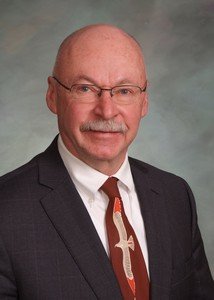
Today, Markovich is a 28-year-old medical student through the WWAMI — a partnership with the University of Washington Medical School and the states of Washington, Wyoming, Montana, Alaska and Idaho to combat the growing doctor shortage. Markovich and his peers have become leading advocates for Medicaid expansion, most recently writing an editorial as “Wyoming’s future physicians” and calling on state representatives to enact Medicaid expansion.
“For our class, supporting Medicaid expansion isn’t a political stance, but one rooted in our interests in improving healthcare in our home state,” the students wrote.
For Markovich, it’s personal: “It’s just such a low hanging fruit that can have such a disproportionate impact.”
Medicaid expansion by the numbers
When Congress passed the Affordable Care Act, better known as Obamacare, the Medicaid expansion provision was seen as a pathway to providing all Americans health insurance.
The law enabled — but due to a U.S. Supreme Court ruling did not require — states to expand their eligibility for Medicaid, which traditionally covered older low-income Americans and those with disabilities. States that expanded access to Medicaid would receive more federal funds to cover the cost of new enrollees; states that did not would continue to receive the same funding they always had.
Nearly 10 years later, 39 states and the District of Columbia have expanded Medicaid eligibility to cover more low-income residents. Wyoming remains one of just 11 states, and the only state in the Mountain West, not to have done so.
According to estimates from the Wyoming Department of Health, at least 19,000 Wyomingites would gain access to health insurance within two years of expansion, resulting in an overall decrease in mortality for the uninsured, increased financial stability and improved mental health outcomes.
Expanding Medicaid would actually save the state upwards of $32 million after two years. That’s due to a provision in the recently-passed American Rescue Plan Act, which shifts 90% of the costs associated with covering Medicaid enrollees in new expansion states to the federal government.
In Montana, a state with similar demographics to Wyoming, the uninsured rate fell by 4% within three years after Medicaid was expanded in 2016. Expansion also was associated with a significant decline in overall cost spent on state Medicaid expenditures due to the increased access to federal funding, a recent report from the nonpartisan Center of Budget and Policy Priorities found.
Wyoming stands to save even more from expanding Medicaid than Montana did, the study argues; the Equality State currently receives the lowest federal matching rate in the nation.
“If Wyoming has similar experiences to Montana, it would be able to expand Medicaid at no state costs for at least 10 years and potentially indefinitely,” Gideon Lukens, the researcher who authored the study, told the Wyoming Truth. “From a purely fiscal standpoint, it’s a great deal for the states.”
Eighth try’s the charm?
The issue of Medicaid expansion is not new to Wyoming. In the past two years, bills have been brought before the legislature at least seven times. But advocates feel there’s new momentum this time around.
Last month, the Joint Revenue Committee voted 9-5 to advance HB0020, a bill which would expand Medicaid coverage to all Wyomingites earning up to 138% of the federal poverty level, or a little under $19,000 a year for a single person living alone.
Sen. Cale Case (R-Riverton), co-chair of the committee, emerged as a leading proponent of expansion. Working in the tourism industry, Case said he’s not able to provide private insurance for his own employees due to the high cost, but believes the program could help bridge the gap for those in need.
“I think it’s kind of a no brainer,” Case told the Wyoming Truth in a subsequent interview. “I feel like we need to do this… I think it’s just our time.”
But not everyone on the committee agreed. Rep. Mark Baker (R-Green River) said he was sympathetic to the plight of the uninsured, but added, “I don’t think this is the right bill right now.”
During the hearing, Sen. Tom James (R-Green River) raised many concerns with expansion — fears that wealthier people might be able to abuse the program or that people might be crowded out from the insurance market, though state health officials said there were mechanisms in place to prevent such problems.
James also suggested that expanding Medicaid would worsen the health care staffing crisis, pointing to a possible increase in the number of patients doctors must serve and a decrease in the compensation they’d receive to do so. James did not respond to an email seeking clarity on his concerns with Medicaid expansion.
Experts and advocates have highlighted that many of the uninsured who would gain coverage already receive health care services, just in emergency room settings. Expanding access would enable them to see primary care physicians more regularly, and reduce the costs hospitals spend on so-called “uncompensated care,” services provided to the uninsured which are never reimbursed.
According to Rep. Ed Buttrey, a Republican state representative from Montana who testified at the hearing, uncompensated care costs fell by 50% in his state after Medicaid was expanded. “Basically, the sky didn’t fall, the state is still financially in great position,” Buttrey said.
Shifting politics raise stakes for expansion
When Obamacare passed on a party-line vote in the Senate, Republicans were outraged, and Democrats faced a self-described “shellacking” in the 2010 midterms.
Over a decade later, the politics have changed. Approval of Obamacare reached its highest point ever this year, and even some deep red states have recently expanded Medicaid. Last month, South Dakota voters approved a ballot initiative to expand access to health insurance by a margin of over 12 points.
Some legislators think the same thing could happen in Wyoming if representatives don’t act soon. An Oct. 2021 poll sponsored by a coalition of Medicaid expansion-supporting health care groups found 66% of Wyomingites favor expansion, including a majority of Republicans.
Josh Hannes, vice president of the Wyoming Hospital Association who testified at the hearing, said those figures are borne out in his own group’s data. “Every single one of our members is in support of expansion,” Hannes told the Wyoming Truth. “I just haven’t heard a really solid argument for not doing this.”
Some on the revenue committee appeared moved by the shifting politics, too.
“I didn’t used to support Medicaid expansion. I’m glad I do now,” Case said, casting his vote to advance the measure.
“I’ve voted against this probably 10 times. I kept learning in the legislature and I have learned, and as I look back, I’ve changed my mind,” said co-chair Rep. Steve Harshman (R-Casper). “I think it’ll be really good for our state.”


